The Secrets of Preventing Mouth Clicks in Voiceover Recordings
https://www.gravyforthebrain.com/secret ... th-clicks/
the reason that being dehydrated makes you clicky is that your natural saliva is less wet. => Less water in the mouth means your mouth is drier and stickier. => Sticky saliva means mouth clicks. So that’s being dehydrated. But it’s not all just about dehydration. Ironically though: Being Over-Hydrated Can Also Cause Lots of Mouth Clicks!
Eating green apples to stop clicky mouth is a temporary fix only. It never lasts more than five or ten minutes before the clicks are back.
How to Remove Mouth Noises & Clicks in Audio
https://www.thepodcasthost.com/editing- ... s-in-audio
During speech production, the mouth, tongue, teeth, and saliva, together with the mouth’s soft tissues, all work together and can sometimes result in little bubbles of saliva getting trapped and producing a clicking or popping sound.“
Mary-Anne’s Top 10 Mouth Click Tips
Here is a list of Mary-Anne’s methods to naturally remedy clicky mouths at the source.
1. Hydration
Proper hydration is important. Think about hydrating not just on the day of the recording or performance, but also on the day before.
2. Avoid Drying Foods
Avoid drying foods and beverages such as coffee, tea, colas, alcohol, salty foods and chocolate. Other drying agents are smoking and vaping.
3. Avoid Dairy
For sure, avoid dairy products the day before, and the day of the performance.
4. Avoid Gulping Down Water
Avoid gulping large volumes of water in an attempt to super hydrate. Sip water periodically throughout the day, the day before the performance is important. Most people need 2 to 3 ½ litres of water per day.
5. Sipping & Timing
Be sure to sip your water two hours before your recording.
6. Spray
If you feel that your pharynx, (back wall of the throat), palate (roof of your mouth), and tongue are feeling a bit sticky or dry, a water spray bottle can be effective. Such small bottles can be found at a Dollar Store or the travel section of your local pharmacy. Open your mouth and aim the spray at the back of your throat. The spray of the water can get to areas of your oral cavity that a gulp of water cannot.
7. Avoid Mouth Breathing
Another source of dehydration is mouth breathing. Avoid this at all costs. Nose or nostril breathing when you are at rest, as in not talking, is your friend for good tongue and oral health as well as a host of other benefits.
8. Relax
Don’t forget to relax, whether you use mindfulness, Yoga, or deep breathing. Nostril breathing and being relaxed, will also help your oral cavity work optimally, and eliminate those clicks.
9. Prepare
Another strategy for being relaxed in your performing speaking life is being prepared. Most people find, in many areas of performance, that being over-prepared, and knowing your speaking or singing targets well will result in greater confidence. That confidence, in turn, renders a reduction in performance anxiety and thus clicking.
10. Swallow
Finally, remember to swallow your saliva. People who forget to swallow because of nervousness, hyper-concentration, or lack of awareness can form bubbles in the corners of their mouths and other parts of their oral cavity, that render noise.
Preventing Mouth Clicks in Voiceover Recordings
Contact me directly: Ironfeatherbooks (@) gmail.com



